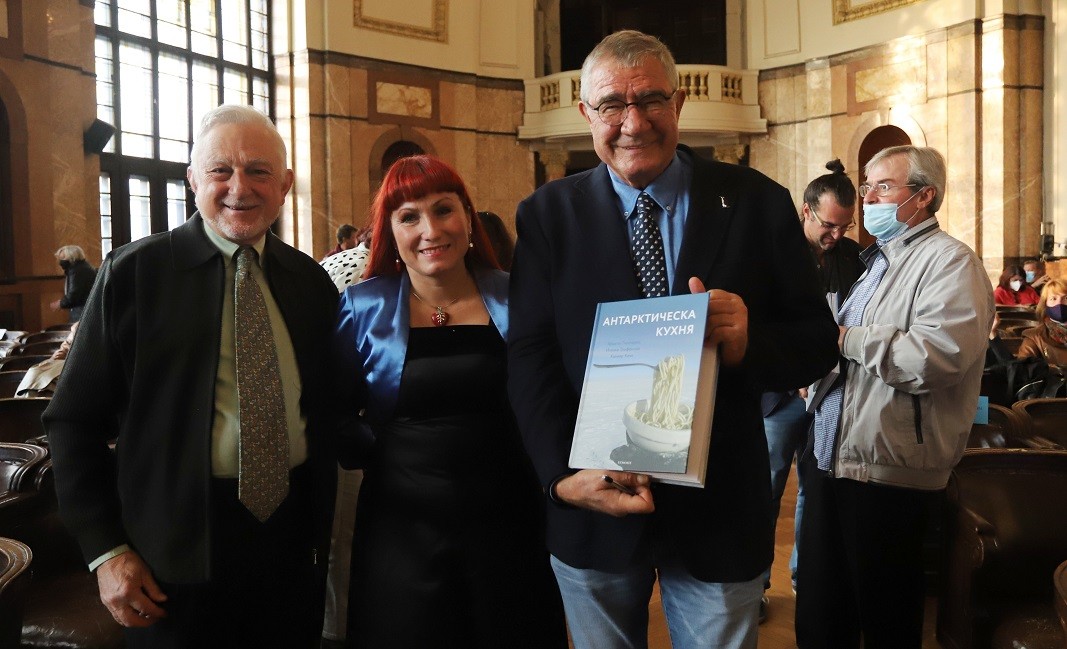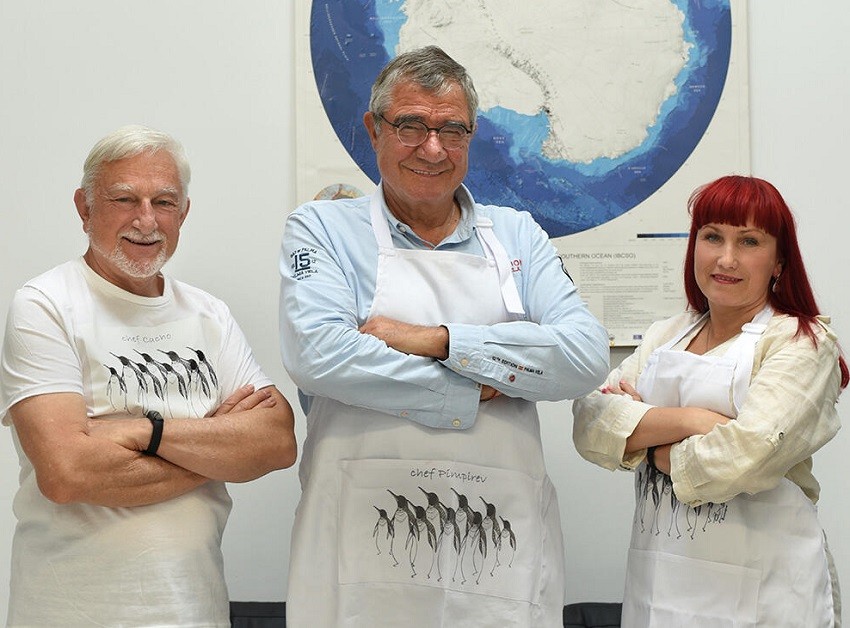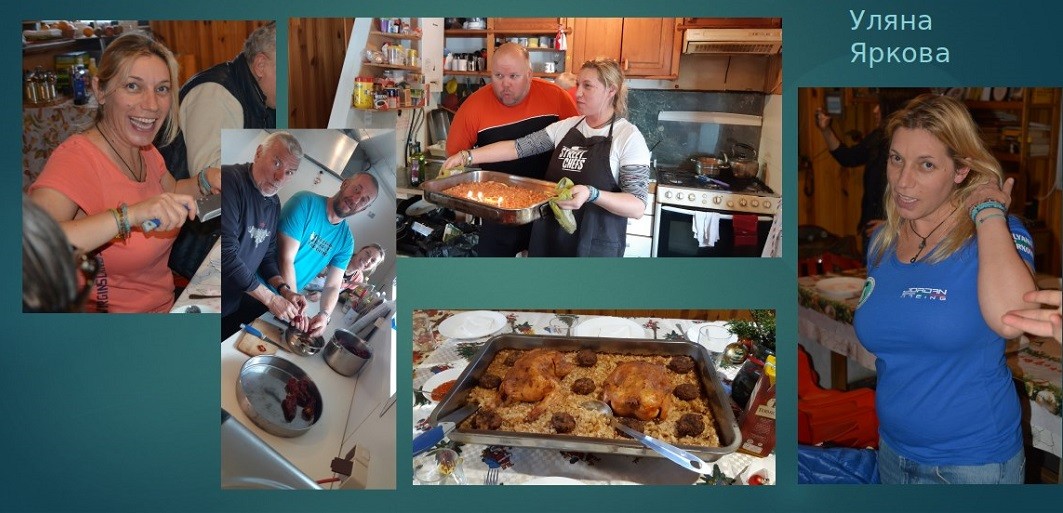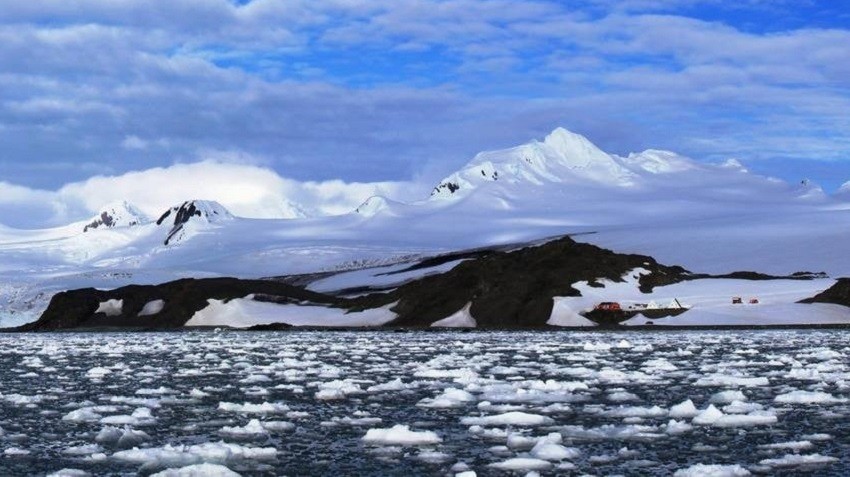"No one is greater than bread," an old Bulgarian saying goes and these days we have learned that the Antarctic scientists also stick to this ancient wisdom. The unique bilingual book "Antarctic Cuisine", in Bulgarian and English, has already been published. The authors are polar researcher and director of the Bulgarian Antarctic Institute Prof. Hristo Pimpirev, Javier Cacho - Spanish writer, scientist and head of the Spanish polar base "Juan Carlos I" and journalist and photographer Iglika Trifonova.

Through the prism of old culinary traditions, the book presents interesting information about the continent itself and the lives of polar scientists there, the difficulties and dangers they face. Over 60 recipes from 29 polar chefs from around the world, accompanied by photos in an authentic setting, lead the reader's imagination to the atmosphere of one of the wildest places on the planet.

Iglika Trifonova had the idea for the book more than two years ago, during a meeting of the European Polar Board, when she heard the leaders of two polar programs talking about the meals they were cooking at their bases. She found out that they themselves did not know what was happening in the polar bases of their colleagues and decided that it would be very interesting to show a general picture of life in Antarctica as solidarity and support are key to the success of the scientific missions of all nations.
"Prof. Pimpirev's name has opened the door to professional secrets. Everyone knows him and treats him with trust and respect, so they gladly sent us all their information,” Iglika Trifonova says.

"This book is something that is unique because the main characters in it are not scientists, but chefs - people who are usually hidden in the kitchen and no one pays attention to them, but they are extremely important. There is a historical part in our book, in which it is quite clear that without the cooks, scientists would not have survived. The chefs tell a lot of interesting things in the book, provide interesting recipes of the most popular dishes in each base. Some of them are quite extravagant for the mass reader, such as meals based on molecular gastronomy. The method is not so well known in the Bulgarian base, but in the Polish base they cook in this way. "Today, there are chefs on missions who have worked in Michelin-starred restaurants; there are military chefs and scientists who have performed this function," she says.
Iglika Trifonova reveals that glacial water is used for cooking in the Bulgarian base and the most popular dessert among polar explorers turns out to be tiramisu.
The head of the Bulgarian polar explorers Prof. Hristo Pimpirev recalls that for over 20 years and during a total of 15 polar expeditions, the role of a cook at the Bulgarian base "St. Kliment Ohridski” was performed by geologist Nikola Petkov. "Food is important because it is one of the few pleasures we have on the icy continent," the professor says and jokingly adds that in the past three years Bulgarians have become like other nations and now have a professional chef - Ulyana Yarkova.

The history of Antarctic research is inextricably linked with the history of the culinary traditions on the continent.
"The first polar explorers who set foot on the continent in the late 19th century consumed canned food," Spanish scientist and writer Javier Cacho, who is co-author of the book says. “However, in the second week of their stay, they realized that they would not be able to endure the long months and had to start preparing their own food on the spot. Then they started taking a good cook with them on their missions. They also started using animals that inhabit the continent for food. Nowadays, this does not happen.”
Javier Cacho has been to Bulgaria many times, but his first contact with the country was a visit to the polar base "St. Kliment Ohridski”, His favorite Bulgarian meal is banitsa that he associates with the celebration of New Year. "I must say that for me the moments spent in the Bulgarian base, at the table, immersed in pleasant conversations and songs, are some of the best I have experienced in my entire life," he says.

"When you visit the various polar bases, you just end up in a different country, because we all stick to our national cuisine, to everything that brings us closer to home," Prof. Pimpirev has told BNR.
Compiled by: Vessela Krasteva /based on interviews with the programs "Hristo Botev" and Radio Sofia on BNR/
English: Alexander Markov
Photos: Facebook/BulgarianAntarcticInstitute and BGNES
Over 80% of Bulgarians are expected to start using artificial intelligence in the next three years , across all age groups. Today, it is almost impossible to find a Bulgarian student who does not turn to ChatGPT when preparing homework. This..
Serbians around the world mark one year after Novi Sad tragedy On November 1, Serbians abroad will join the call of students in Serbia to mark the anniversary of the collapse of the canopy of the Novi Sad railway..
"We cannot escape from modern technologies, but we must think about how we can use artificial intelligence to improve the quality of education without losing human contact," said Mimi Nicheva, head of the Bulgarian Sunday School "Sts...
This year, Christmas has "arrived" in Sofia as early as November with the aroma of mulled wine, cinnamon and festive magic. Radio Bulgaria recommends that..
Three-time world champion and Olympic weightlifter Carlos Nasar will be holding a special event with the Bulgarian community in London on 23 November...
Generation Z students (born 1995–2012) are widely using artificial intelligence in their learning, with teachers reporting that more than 85% complete..

+359 2 9336 661
